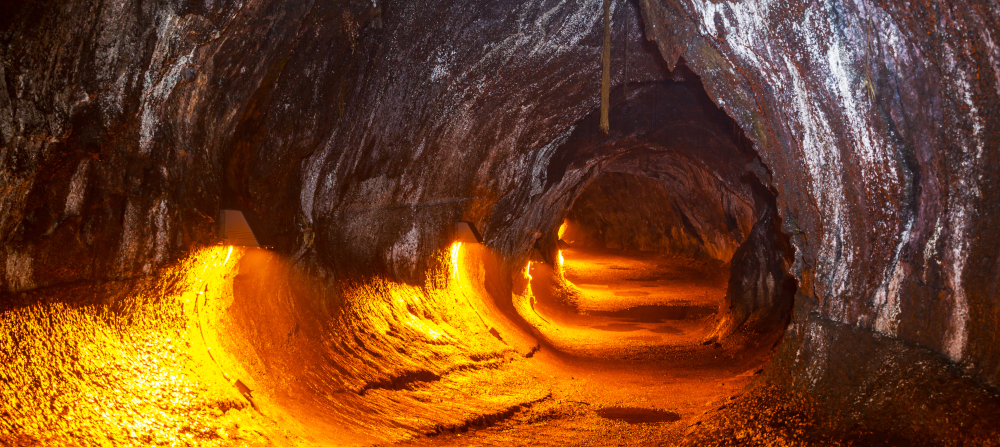
Gold mining has shaped Africa’s economic history for centuries. From the caravan trade routes of the Sahel to today’s industrial mines in South Africa, Ghana, and Tanzania, the continent has consistently supplied the world with gold. In 2025, however, Africa’s gold mining industry stands at a transformative point. With mounting global pressure to reduce environmental harm, increase operational efficiency, and uphold ethical standards, traditional methods no longer suffice. The gold sector must now adopt new models that place innovation, accountability, and sustainability at the centre of operations. This shift is not only necessary, it is already underway.
The Role of Technology in Shaping the Future
Across the continent, mining companies are embracing advanced technologies to modernise exploration and extraction. Automation is taking hold, with driverless trucks and machinery improving safety and reducing costs in underground operations. Artificial intelligence is enhancing exploration efforts, making it possible to identify high-yield areas more precisely while minimising environmental impact. Predictive maintenance powered by machine learning is enabling companies to avoid costly equipment breakdowns and streamline operations.
Drones are revolutionising mapping and surveillance efforts. They can cover vast and difficult terrain quickly, and are especially useful in identifying illegal mining activity and environmental changes. Real-time data collection is also improving, allowing firms to respond rapidly to on-the-ground developments. Perhaps most notably, blockchain is creating transparent systems for tracking gold from mine to market, providing assurance to investors and consumers that the product has been sourced responsibly.
Africa’s gold sector has historically been associated with ecological damage. In artisanal and small-scale mining, mercury pollution has been a long-standing problem. However, new initiatives are now pushing mercury-free alternatives that rely on gravity concentration or borax processing, significantly reducing harm to ecosystems and human health.
Large-scale operations are also investing in renewable energy. Mines in Ghana and South Africa are integrating solar power and battery storage to lower emissions and reduce dependence on diesel generators. These transitions not only address environmental concerns but also cut costs, particularly in areas with unstable energy infrastructure. Water management, another critical concern, is seeing innovation as well. Companies are implementing recycling systems and adopting dry-stack tailings to reduce the risk of environmental contamination. In some regions, exhausted mining land is being rehabilitated for agricultural use, turning once-damaged ecosystems into productive community assets.
Putting Communities at the Centre
 For gold mining to be sustainable, it must benefit local communities. Mining companies across Africa are shifting their strategies to be more inclusive and responsive to local needs. This means consulting communities before beginning projects, establishing revenue-sharing mechanisms, and investing in long-term development such as healthcare, education, and infrastructure. In Mali, for example, some mining firms are contributing to community development funds that directly improve living conditions in nearby villages.
For gold mining to be sustainable, it must benefit local communities. Mining companies across Africa are shifting their strategies to be more inclusive and responsive to local needs. This means consulting communities before beginning projects, establishing revenue-sharing mechanisms, and investing in long-term development such as healthcare, education, and infrastructure. In Mali, for example, some mining firms are contributing to community development funds that directly improve living conditions in nearby villages.
The industry is also becoming more gender-inclusive. Women are taking on increasing roles, not only in labour but also in science, engineering, and leadership. Gender-sensitive policies are being adopted to ensure workplaces are safe and supportive. At the same time, Africa’s youth, often overlooked in extractive industries, are being trained in mining technologies, environmental sciences, and digital tools. These investments in human capital are helping to build local expertise and ensure long-term industry resilience.
Technological advancement and community engagement can only succeed within strong regulatory frameworks. Governments across Africa are reforming outdated licensing systems, creating digital platforms to reduce red tape and attract ethical investors. Countries like Rwanda and Tanzania are showing how regulatory clarity can support innovation and compliance.
Taxation is also being re-evaluated. While governments seek fair returns from their mineral resources, they must avoid deterring investors with burdensome policies. Finding a balance between national interest and investor confidence is key. Anti-corruption efforts are critical, too. Blockchain transparency, third-party audits, and stronger enforcement mechanisms are gradually restoring trust in a sector that has historically struggled with accountability.
Navigating Complex Challenges
Despite clear progress, the gold mining sector in Africa still faces formidable hurdles. Security threats in regions like the Sahel disrupt operations and endanger workers. Many companies lack access to capital required for environmentally friendly upgrades and compliance with ESG standards. Climate change brings additional strain, flooding, drought, and extreme temperatures test infrastructure and demand adaptive responses. One of the most persistent challenges is integrating the artisanal and small-scale mining sector into the formal economy. These informal miners play a crucial economic role, but lack access to training, markets, and legal protection.
A Promising Decade Ahead
Looking to the future, Africa is poised to become a global leader in responsible gold mining. Ethical gold markets are growing, with increasing demand for traceable, conflict-free gold. The adoption of clean energy, smart mining, and recycling technologies is set to expand, transforming how gold is extracted and processed. Domestic refining and jewellery manufacturing, long dominated by markets outside Africa, will begin to shift inward, adding value locally and stimulating industrial growth.
African-owned firms and investors are also gaining ground. As financial access improves and technological skills deepen, more local players will shape the future of gold mining. This not only enhances economic sovereignty but also ensures that benefits remain closer to the source of extraction. Africa’s gold mining story is entering a vital new chapter. While the ground may be ancient, the tools, priorities, and values driving the industry are evolving rapidly.
No longer just about extraction, gold mining in Africa is becoming a test of sustainability, innovation, and human development. If managed with care and foresight, the sector can become a benchmark for responsible resource use, creating prosperity not just for investors, but for entire nations. The future, glittering with promise, lies in how wisely the continent’s golden riches are embraced, and in the commitment to mine not only for profit, but for people and planet alike.



